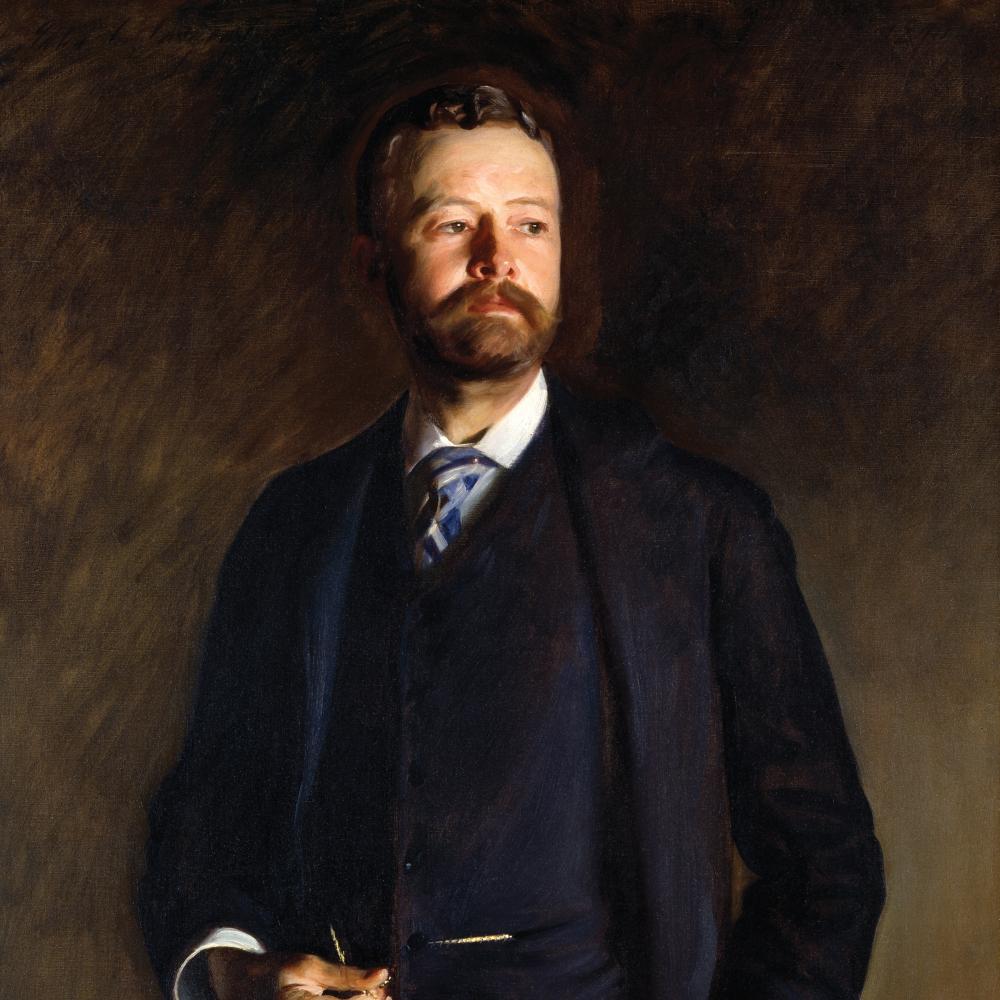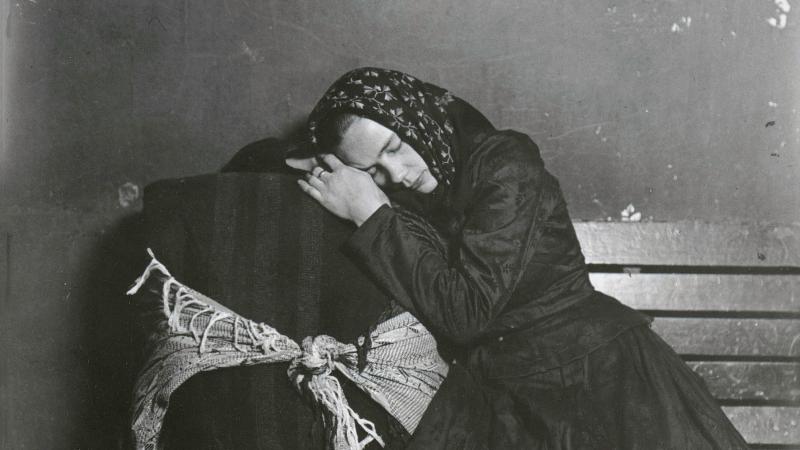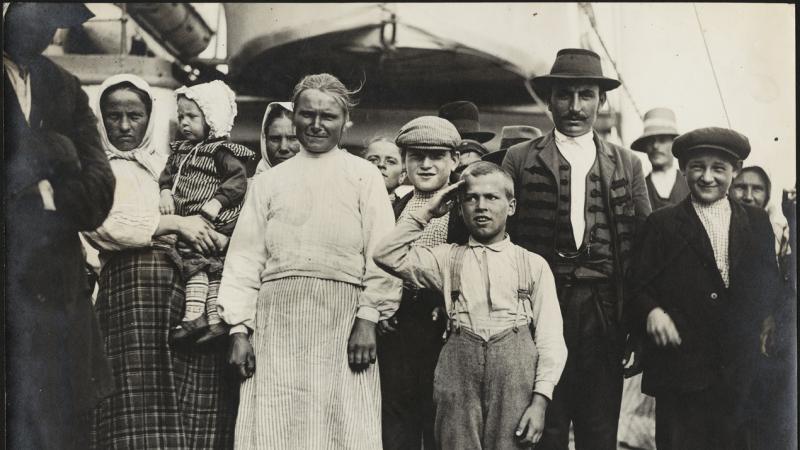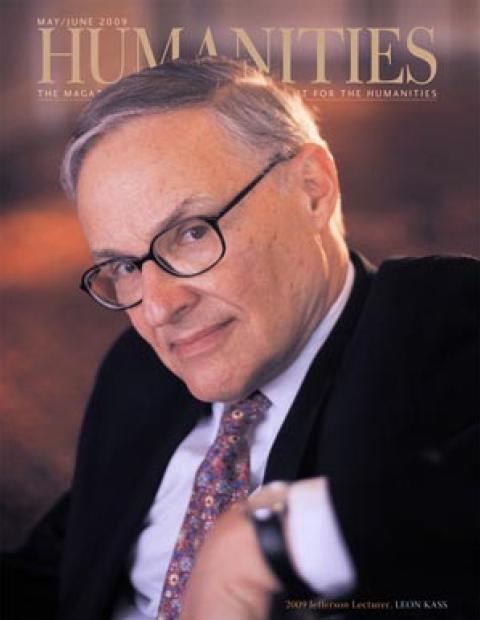“Let us welcome all immigrants who are sound mentally and physically and intelligent, and let us protect the country from those who tend to lower the average of health and intelligence.”
—Prescott Hall, 1907
“The Puritan is passed; the Anglo-Saxon is a joke; a newer and better America is here.”
—James Michael Curley, 1916
Boston—the Hub of the Universe, Athens of America—was the country’s most important city up to the mid-nineteenth century. This was John Winthrop’s City upon a Hill that became the cradle of the Revolution and incubator of American democracy. By the 1800s, the Puritan drive for perfection had morphed into the crusade for more temporal reforms: William Lloyd Garrison’s abolitionism, Dorothea Dix’s work with the criminally insane, and Julia Ward Howe’s work with the blind.
Boston had helped create and nourish America’s first truly homegrown literature and culture, with Hawthorne, Emerson, Longfellow, Thoreau, and Whittier. Its historians—Parkman, Adams, and Bancroft—wrote the first drafts of American history. Its magazines—The Atlantic and the North American Review—shaped the nation’s elite opinion. And then there was Harvard University across the river in Cambridge.
Boston had long stood at the apex of Anglo-American culture. Yet by the end of the nineteenth century, that culture’s foundations seemed on shaky ground. The 1880 Census showed that 63 percent of Bostonians were either immigrants or the children of immigrants. By 1877, Catholics accounted for more than three-quarters of all births in New England. Irish Catholics had already taken over the city’s police and fire departments. Catholic parents increasingly abandoned the public schools for parochial schools. In 1884, Bostonians elected Hugh O’Brien as the city’s first Irish Catholic mayor and by 1890 Irish politicians had taken office in sixty-eight Massachusetts towns and cities.
By the late nineteenth century, a growing number of voices in America complained about both the numbers of immigrants entering the country as well as their so-called “quality.” Anti-immigrant sentiment was nothing new in America, but the growing tide of newcomers from Eastern and Southern Europe during this time generated a great deal of fear and concern. Newspaper headlines screamed: “Lunatics and Idiots Shipped from Europe” and “The World’s Dumping Ground.”
It is no surprise that much of the agitation for immigration restriction at this time originated in New England. When discussing the “masses of peasantry” from Italy, Hungary, Austria, and Russia in the 1890s, MIT president Francis Walker expressed the combination of dismay, disdain, and deep pessimism that characterized New England’s Anglo-Saxon mind:
These people have no history behind them which is of a nature to give encouragement. They have none of the inherited instincts and tendencies which made it comparatively easy to deal with the immigration of olden time. They are beaten men from beaten races; representing the worst failures in the struggle for existence. Centuries are against them, as centuries were on the side of those who formerly came to us.
Perhaps the best expression of the insecure New England mindset was Thomas Bailey Aldrich’s 1895 poem “Unguarded Gates.” A native of New Hampshire and former editor of The Atlantic, Aldrich stood second to no one in his defense of the Boston Brahmin tradition. He described his poem as “misanthropic.”
Wide open and unguarded stand our gates,
And through them presses a wild motley throng . . .
Flying the Old World's poverty and scorn;
These bringing with them unknown gods and rites,
Those, tiger passions, here to stretch their claws.
In street and alley what strange tongues loud,
Accents of menace alien to our air,
Voices that once the Tower of Babel knew!
Not all of the voices coming out of Boston opposed immigration. In 1896, Congressman John F. Fitzgerald gave a rousing, hour-long July Fourth address at historic Faneuil Hall. Mixed in with traditional patriotic sentiments, the thirty-three-year-old, second-generation Irish-American defended “the down-trodden and oppressed of every land,” who come to America “to mould in their own fashion the way to fortune and to favor in this, the land of their adoption.”
The Brahmins could see their power and influence waning. Boston had long ago ceded its dominance in trade to New York, with the hub of culture and communications to follow. “As Brahmins ceased to be the undisputed arbiters of the public good,” wrote one historian, “they became less confident of the Americanization of the newcomers.” Henry Adams, grandson and great-grandson of presidents, advised his brother to start writing their epitaphs, for the more he witnessed “the formation of the new society, I am more and more impressed with my own helplessness to deal with it.” The intellectual arguments of the Brahmins carried progressively less weight, especially regarding immigration. Francis Walker noted:
For myself, strongly as I feel the evils of the existing situation [immigration], I have little hope of their early correction by law. On one or two occasions, when I have been called to speak in public upon this theme, I have seen how much more taking is the appeal to sentiment than the address to reason, in this matter; how great is the controversial advantage of him who speaks in favor of the complete freedom of entrance which has characterized our career thus far; how strong is the instinctive dislike of an American audience for any schemes of restriction or exclusion in the face of the clearest considerations of expediency and even of national safety.
Yet a new generation of Bostonians chose not to give up the fight.
At just twenty-five years old, Prescott Farnsworth Hall formed the Immigration Restriction League (IRL) in Boston in 1894 with his friends Charles Warren and Robert DeCourcy Ward. All three were members of Harvard’s Class of 1889. Warren was descended from a famous colonial Boston family. Ward was a Brahmin Saltonstall on his mother’s side; his father was a wealthy Boston merchant. Hall’s father was also a wealthy merchant. Warren and Hall were lawyers, and Ward was beginning his career as a professor of climatology at Harvard.
Both pride and insecurity fueled the three young Bostonians: a prideful defense of Anglo-Saxon traditions mixed with insecurity brought about by the Brahmins’ increasing loss of influence. Members of the IRL were driven by a fear that American democracy, founded by Anglo-Saxon settlers using Anglo-Saxon law and government, could perish under the avalanche of exotic immigrants.
Prescott Hall, who would become one of the most passionate and active keepers of the Anglo-Saxon flame, articulated this fear best when he asked: “Is there, indeed, a danger that the race which has made our country great will pass away, and that the ideals and institutions which it has cherished will also pass?”
The IRL raised specific questions about American society and democracy. Was America great because of the hard work of successive waves of immigrants coming to the nation’s shores looking for opportunity? Or, as Hall and his colleagues were suggesting, was America’s greatness a byproduct of its Anglo-Saxon settlers?
Hall, who would be the driving force behind the IRL for over twenty-five years, looked more like an earnest country parson than a fire-breathing activist. He suffered from insomnia and ill health and, according to one description, was a “gaunt, sunken-eyed figure.” His mother was forty-five years old when Prescott was born and an invalid for most of her life. She raised her son in a protective cocoon. Hall’s wife later described how her husband, as a child, “grew up a frail little hothouse plant, for he was never allowed to romp, to climb, and to be reckless as other boys were.” One historian described Hall as “an unstable New Englander, contemplative, subject to depressions.”
The deep depressions from which Hall suffered were not unusual for his era and social class. In fin-de-siècle America, well before the age of Prozac, doctors diagnosed an epidemic of what was then called neurasthenia. Many contemporary social critics and physicians noted a general “lowering of the mental nerve” among the northern urban middle class who seemed increasingly plagued by self-doubt, paralysis of will, insomnia, and other neuroses.
Insecurity and melancholy went hand in hand with these New Englanders’ fears of being displaced, in terms of absolute numbers, as well as political power and cultural influence. By the late 1800s, Boston Brahmin society was in decline. An increase in divorces and suicides and a decrease in birthrates among native-born Protestants—especially when compared with large Irish Catholic families—only added to the sense of loss and pessimism. The new immigration from Eastern and Southern Europe provided the double whammy to the Brahmin psyche, reinforcing whatever gloom and insecurity was caused by their loss of control to the Irish.
Francis Walker provided the intellectual explanation for this phenomenon, blaming immigrants and the supposed degrading conditions they brought to America for the declining Protestant birthrates. Prescott Hall picked up the idea as just one rationale for immigration restriction. (Hall and his wife were childless.) At the dawn of the twentieth century, old-stock Americans saw grave national consequences in the declining birthrates among native-born white women and a seeming softening of the dwindling Anglo-Saxon stock, as exhibited by a prevalence of neurasthenics.
In response, the boisterous governor of New York in 1899 advocated what he termed “the strenuous life.” Theodore Roosevelt was from an old Dutch New York family on his father’s side, but he had a message for the Boston Brahmins and other native-born Americans. He warned:
If we stand idly by, if we seek merely swollen, slothful ease and ignoble peace, if we shrink from the hard contests where men must win at hazard of their lives and at the risk of all they hold dear, then the bolder and stronger peoples will pass us by, and will win for themselves the domination of the world.
The words were as pertinent to a nation beginning to enlarge its role in the world as it was a warning to Anglo-Saxons who risked being overtaken by more vigorous immigrant groups. “New England of the future will belong, and ought to belong, to the descendants of the immigrants of yesterday and today,” Roosevelt would predict in 1914, “because the descendants of the Puritans have lacked the courage to live.”
Prescott Hall embodied a different form of the strenuous life. Through ill health and melancholy, Hall fought with his pen, badgering public officials and newspapermen, ever relentless in seeking to restrict immigration from undesirable groups. Rather than completely retreating into gloom or going into exile, he remained to fight his imperfect fight. But, as the years went by, history steadily drifted away from him. He grew increasingly bitter as his ideas lost whatever sliver of youthful sympathy they once had for the American ideal of immigration.
Yet Hall’s lifelong battle against immigration exhibited a simple irony. The IRL stood as a defender of Anglo-Saxon values, of which democracy was at the forefront, yet its members chose to eschew democratic politics and organizing. The people could not be trusted. As Walker believed, they were too easily swayed by sentiment to face up to the tough task of limiting immigration.
In fact, Hall embodied the last gasp of the old New England Federalist tradition. He opposed abstract universals in favor of what he termed “Nordic concreteness.” To Hall, America’s Founding Fathers used the universal ideals of the Declaration of Independence to institute a type of aristocracy. By the early twentieth century, Hall saw that aristocratic ideal in tatters. To remedy that, he argued for limiting voting rights to those Americans who paid a certain level of taxes, possessed a certain level of education, or owned a business of a certain size.
So it was no surprise that instead of working through political means, the IRL opted for an elite approach. A precursor to the modern American think tank, the IRL focused on social science research, which it published in pamphlets and distributed to journalists, politicians, businessmen, and other community leaders. Between 1894 and 1897, in the wake of the typhus and cholera scares and the continuing debates regarding Ellis Island, the league published some 140,000 copies of its pamphlets with titles such as “Immigration: Its Effects upon the United States, Reasons for Further Restriction.” The league bragged that over 500 newspapers nationwide were receiving IRL pamphlets and some were even reprinting part or all of these reports as editorials.
Yet the organization would never approach a mass movement. After two years in existence, its membership totaled only 670 and IRL meetings rarely consisted of more than twelve members. No doubt embarrassed by so few members, Hall tried to fudge the issue in his testimony before a federal commission in 1899. He claimed that 5,000 individuals who were not members received the League’s materials and “for all practical purposes might be considered members,” even if they did not pay dues.
The IRL’s strength was not the size of its membership, which was perhaps too plebeian a yardstick, but rather its quality. The membership of the IRL consisted of a Who’s Who of Boston Brahmins. As the years went by, prominent national figures added their names to its roster, including novelist Owen Wister (a close friend of Theodore Roosevelt’s) and publisher Henry Holt. Academia also added intellectual sheen to the group: Harvard president A. Lawrence Lowell, the presidents of Bowdoin College, Georgia School of Technology, and Stanford University, and University of Wisconsin professors John R. Commons and Edward A. Ross were all members.
The IRL worked closely with Henry Cabot Lodge, who had moved over to the U.S. Senate by 1893 and would soon take over as chair of its immigration committee. The league provided specialized knowledge to opinion makers and lawmakers, giving a patina of intellectual respectability to the drive to limit immigration. This led Lippincott’s Monthly Magazine to tell its readers that it was not “professional alarmists who are taking up the vital question of immigration and call for a halt; it is students of social science . . . who toll a warning bell.”
The founding of the Immigration Restriction League was part of a national wave of reform during the 1890s, with organizations forming to push for temperance, ban prostitution, and protect the environment and consumers. Immigration regulation, rather than an aberration, was part of a national movement that turned its back on the laissez-faire philosophy of government and sought to transform American society and control the social changes roiling the country in the late 1800s. Two prominent patrician members of the IRL were better known for their support of other Progressive reforms. Joseph Lee earned his fame as the “father of America’s playgrounds,” while Robert Woods was a leader in Boston’s settlement house movement.
The IRL’s constitution laid out its main objectives:
to advocate and work for the further judicious restriction or stricter regulation of immigration. . . . It is not an object of this League to advocate the exclusion of laborers or other immigrants of such character and standards as fit them to become citizens.
Its early advocacy was pointedly free of ethnic prejudice, as Ward wrote that the league did not believe that immigrants should be excluded “on the ground of race, religion, or creed.” Yet they were unhappy with the current immigration laws. Even with the opening of Ellis Island and the expansion of excludable categories, the IRL thought the quality of immigrants was deteriorating.
Among its proposals, the IRL lobbied for increasing the head tax from one dollar per immigrant to at least ten dollars and possibly as high as fifty dollars; requiring a consular certificate for each immigrant, acknowledging their character and desirability; and a mandate that every immigrant had to read and write in his or her own language. However, the IRL thought an education test in English would be unfair.
Like so many other Americans with an interest in immigration, Prescott Hall and the rest of the Immigration Restriction League saw Ellis Island as the focus of immigration debate. The young reformers were allowed to visit Ellis Island on at least three occasions in 1895 and 1896, where they were given near carte blanche to conduct their own unofficial investigations. In April 1895, Hall visited Ellis Island and deemed its operation greatly improved over previous years, although he still saw too many illiterate, unskilled workers, especially Italians, during his visit. “As nearly as I could judge in the case of the Italians whom I saw at Ellis Island,” Hall told the Boston Herald, “there was in general a close connection between illiteracy and a general undesirability.”
In mid-December 1895, Charles Warren and Robert Treat Paine Jr. visited Ellis Island, bringing pamphlets in English and other languages. Once there, the young Bostonians were granted remarkable access as they handed out reading material to immigrants who had already told officials they could read. According to Warren and Paine, 9 to 10 percent of those claiming to be literate were lying. Over three days, the two men examined immigrants from six separate ships, most hailing from the Austro-Hungarian Empire and Russia. All the Germans and Bohemians they interrogated could read and write. However, 48 percent of Russians, 37 percent of Hungarians, 62 percent of Galicians, and 45 percent of Croatians could not read. Despite their unusual access, the IRL deemed the investigation a failure since during the visit not a single Italian immigrant passed through Ellis Island, and no investigation would be complete without assessing the vast throng of illiterate and unskilled Italians pouring into the country.
So, in April 1896, IRL members again visited Ellis Island. This time, Prescott Hall, Robert DeCourcy Ward, and George Loring Briggs came at the invitation of Ellis Island Commissioner Joseph Senner. The IRL committee examined 3,174 Italian immigrants and found that 68 percent of them were illiterate. Yet, much to their dismay, only 197 of these Italians were excluded from entry. In just a few days, officials at Ellis Island had let in almost 2,000 illiterate Italians. Overall, the IRL committee found that only 4.5 percent of the immigrants from Northwestern Europe coming through Ellis Island during their visit were illiterate, while nearly 48 percent of those from Southern and Eastern Europe could not read.
The IRL members came away from their visit feeling surprisingly positive toward the enforcement of the current law—perhaps due to the great deference granted to them by Ellis Island officials. Yet they called current immigration laws “radically defective” in keeping out undesirables. A minuscule number of immigrants were actually debarred or deported. In 1892 and 1893, the first years of the new immigration law, the number was around one-half of 1 percent. With the 1893 immigration law instituting boards of special inquiry, the percentage doubled between 1894 and 1895 to around 1 percent. To rectify this situation, the IRL continued to press for a literacy test.
Although a literacy test was theoretically racially and ethnically neutral, restrictionists rightly believed it would have a disparate effect on immigrants. Henry Cabot Lodge used the work of the IRL to push for the literacy test in the Senate and was quite explicit that the test would mostly affect Eastern and Southern Europeans.
Not all restrictionists were enamored with the literacy test. Although he died in January 1897 before Congress took up the idea, Francis Walker, for once applying some of his economist’s skepticism, had earlier noted that the “anarchist, the criminal, the habitual drunkard would be far more likely to pass the ordeal of a reading and writing test than the pocket-book test.”
Eventually, both the House and Senate passed legislation requiring a literacy test in early 1897. The test would consist of roughly twenty-five words from the U.S. Constitution translated in the immigrant’s native language. However, both Joseph Senner and Herman Stump, head of the Immigration Bureau, urged President Grover Cleveland to veto the idea.
Writing to the secretary of the Treasury, Stump agreed that the public demanded greater immigration restriction. However, he argued that any such laws “should be tempered with sympathy for our unfortunate fellow beings who are compelled by adversity to abandon their homes to seek an asylum in an unknown country.” Making a familiar argument, Stump said that America needed unskilled labor to “construct railroads, macadamize our highways, build sewers, clear lands,” thereby freeing up native-born Americans from jobs they found distasteful and allowing them “to engage in the higher and more remunerative trades and occupations.”
Such arguments helped sway Cleveland who, in one of his final acts as president, vetoed the literacy bill. Congress was unable to override it. Cleveland’s veto message was a defense of traditional views of immigration. “It is said, however, that the quality of recent immigration is undesirable,” Cleveland stated. “The time is quite within recent memory when the same thing was said of immigrants who, with their descendants, are now numbered among our best citizens.”
Cleveland said he would rather “admit a hundred thousand immigrants who, though unable to read and write, seek among us only a home and opportunity to work, than to admit one of those unruly agitators and enemies of governmental control, who can not only read and write, but delights in arousing by inflammatory speech the illiterate and peacefully inclined to discontent and tumult.”




